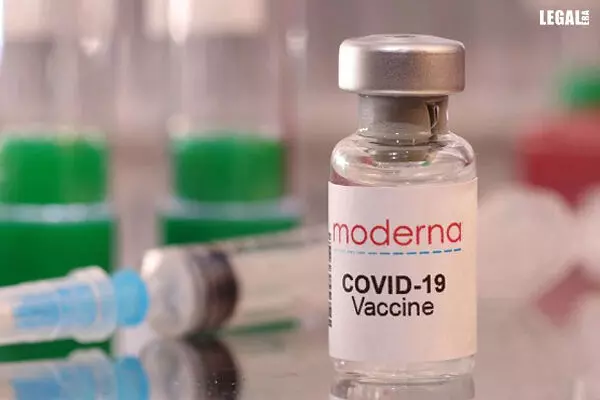- Home
- News
- Articles+
- Aerospace
- Artificial Intelligence
- Agriculture
- Alternate Dispute Resolution
- Arbitration & Mediation
- Banking and Finance
- Bankruptcy
- Book Review
- Bribery & Corruption
- Commercial Litigation
- Competition Law
- Conference Reports
- Consumer Products
- Contract
- Corporate Governance
- Corporate Law
- Covid-19
- Cryptocurrency
- Cybersecurity
- Data Protection
- Defence
- Digital Economy
- E-commerce
- Employment Law
- Energy and Natural Resources
- Entertainment and Sports Law
- Environmental Law
- Environmental, Social, and Governance
- Foreign Direct Investment
- Food and Beverage
- Gaming
- Health Care
- IBC Diaries
- In Focus
- Inclusion & Diversity
- Insurance Law
- Intellectual Property
- International Law
- IP & Tech Era
- Know the Law
- Labour Laws
- Law & Policy and Regulation
- Litigation
- Litigation Funding
- Manufacturing
- Mergers & Acquisitions
- NFTs
- Privacy
- Private Equity
- Project Finance
- Real Estate
- Risk and Compliance
- Student Corner
- Take On Board
- Tax
- Technology Media and Telecom
- Tributes
- Viewpoint
- Zoom In
- Law Firms
- In-House
- Rankings
- E-Magazine
- Legal Era TV
- Events
- Middle East
- Africa
- News
- Articles
- Aerospace
- Artificial Intelligence
- Agriculture
- Alternate Dispute Resolution
- Arbitration & Mediation
- Banking and Finance
- Bankruptcy
- Book Review
- Bribery & Corruption
- Commercial Litigation
- Competition Law
- Conference Reports
- Consumer Products
- Contract
- Corporate Governance
- Corporate Law
- Covid-19
- Cryptocurrency
- Cybersecurity
- Data Protection
- Defence
- Digital Economy
- E-commerce
- Employment Law
- Energy and Natural Resources
- Entertainment and Sports Law
- Environmental Law
- Environmental, Social, and Governance
- Foreign Direct Investment
- Food and Beverage
- Gaming
- Health Care
- IBC Diaries
- In Focus
- Inclusion & Diversity
- Insurance Law
- Intellectual Property
- International Law
- IP & Tech Era
- Know the Law
- Labour Laws
- Law & Policy and Regulation
- Litigation
- Litigation Funding
- Manufacturing
- Mergers & Acquisitions
- NFTs
- Privacy
- Private Equity
- Project Finance
- Real Estate
- Risk and Compliance
- Student Corner
- Take On Board
- Tax
- Technology Media and Telecom
- Tributes
- Viewpoint
- Zoom In
- Law Firms
- In-House
- Rankings
- E-Magazine
- Legal Era TV
- Events
- Middle East
- Africa
Moderna sues Pfizer, BioNTech for Covid vaccine patent infringement

Moderna sues Pfizer, BioNTech for Covid vaccine patent infringement
It accused the companies of copying its approach of encoding a full-length spike protein in a lipid nanoparticle
Cambridge, Massachusetts-based Moderna has accused Pfizer and BioNTech of violating intellectual property protecting key elements of its messenger RNA technology in developing the Comirnaty vaccine.
Moderna said it had patents from 2010 to 2016 on the mRNA technology that made its Spikevax shot possible. The vaccines played a crucial role in the pandemic response, particularly in the US.
Moderna accused Pfizer and BioNTech of copying its technology without seeking permission from it.
The company said it was filing a suit in the US District Court in Massachusetts and a regional court in Germany.
Stephane Bancel, the chief executive officer at Moderna said in a statement, "We are filing these lawsuits to protect the innovative mRNA technology platform that we pioneered; invested billions of dollars in creating and patented during the decade preceding the Covid-19 pandemic."
Meanwhile, Pfizer maintained that it had not been served with the lawsuit. Last year, it recorded almost $37 billion in sales from Comirnaty, while Moderna posted roughly $18 billion of revenue from Spikevax.
The intellectual property battles over technology used in both the Moderna and Pfizer-BioNTech vaccines are proliferating. Early this year, Alnylam Pharmaceuticals sued Moderna, Pfizer and BioNTech over the lipid nanoparticle technology used in their Covid vaccines. Moderna has sparred with the National Institutes of Health on whether to list the agency's scientists as inventors on patents for Moderna's Covid vaccine.
Moderna said it was not asking the courts to pull the Pfizer-BioNTech Covid vaccine from the market nor to block future sales. The company was only seeking damages for the period starting 8 March 2022. It said it would not seek damages for Pfizer's sales to 92 lower and middle-income countries.
Earlier, during the Covid crisis, Moderna promised not to enforce its intellectual property during the pandemic. However, on 7 March, it modified that pledge to apply only to lower-income countries, essentially making the litigation possible.
The company stated that Pfizer and BioNTech had other options but "decided to proceed with a vaccine that had the same exact mRNA chemical modification to its vaccine." It also accused Pfizer and BioNTech of copying its approach of encoding a full-length spike protein in a lipid nanoparticle.



